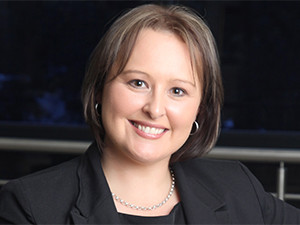
Newly-elected Institute of IT Professionals of SA (IITPSA) president Ulandi Exner's main objectives are to ensure local ICT practitioners conduct themselves professionally, and to encourage more women to take up ICT jobs.
Exner, who replaced Wellington Matope as president in July, spoke to ITWeb this morning following the accreditation of the IITPSA by the International Professional Practice Partnership (IP3).
The IP3 is an international body that champions the development of the global IT profession by providing a platform that helps shape and implement relevant policies to foster professionalism in IT worldwide.
"I feel absolutely honoured to be elected as the IITPSA president," said Exner, who is the third female president in the history of the IITPSA. "Also, being a woman in ICT, I am very delighted to represent women in the sector that is still predominantly dominated my men. The ratio between men and women in the ICT industry in still 80:20. So, for me, this means a lot."
Female mentors
To address the gender imbalances that have historically dogged the industry, Exner said the IITPSA has already entered a memorandum of understanding with local non-governmental organisation, Women in IT.
Women in IT's agenda is to drive the involvement of more women in ICT, while the IITPSA is involved in a mentorship programme, she noted.
"We co-ordinate and facilitate mentors and mentees - we have a database of women mentors, these are influential women in IT with very high profile positions. The mentees can be any young woman that can contact us and we can then facilitate their development," she said.
Exner's other goal is to start reaching out to schools and see why girls are not choosing IT as a profession.
"I am aware of a lot of young girls who are good developers, and we are starting to see an increase in that but we need to do a lot of work. I believe this has to start at the basic education level. Whenever I have an opportunity to speak to young IT girls, I always ask them: 'How many are you in your class?' In most cases, the answer is 'one'".
The reason behind this, she said, is stigma, which she believes may take a long time to eradicate, but under her watch, she vowed the IITPSA will take small steps to eliminate the stigma associated with women in IT.
According to Exner, the local ICT industry also lacks professionalism, which is very concerning. "Computing and computers have become an integral part of our lives. We are now involved in tasks that could be life-saving or life-threatening but we just allow anyone to practice IT," she pointed out.
Taking responsibility
However, she said although IT has now become critical, SA lacks a statutory body for IT professionals. "We have got lawyers and doctors who subscribe to specific bodies, adhering to their codes of conduct and ethics. If they do not conform to these, they can be debarred or expelled, meaning they can't practice any longer."
Nonetheless, she added, for people in ICT, "if they are involved, for example, for the failure of a R20 million project, they move on to the next company and they start on a new project. There is no accountability."
She believes the accreditation by IP3 is one step towards ensuring local IT practitioners are viewed in a professional light by their global peers.
IITPSA was visited by a team of international IP3 assessors in July. The team interrogated all of IITPSA's practices, and closely examined the process by which members are upgraded to professional status. The team recommended to the IP3 board that IITPSA be awarded full accreditation for a period of five years, and approval was given.
The institute was also accredited by SAQA as the professional body for IT in SA in 2012, "so it is now accredited at both local and international levels. This helps the Institute to further its stated mission," Exner concluded.
Share